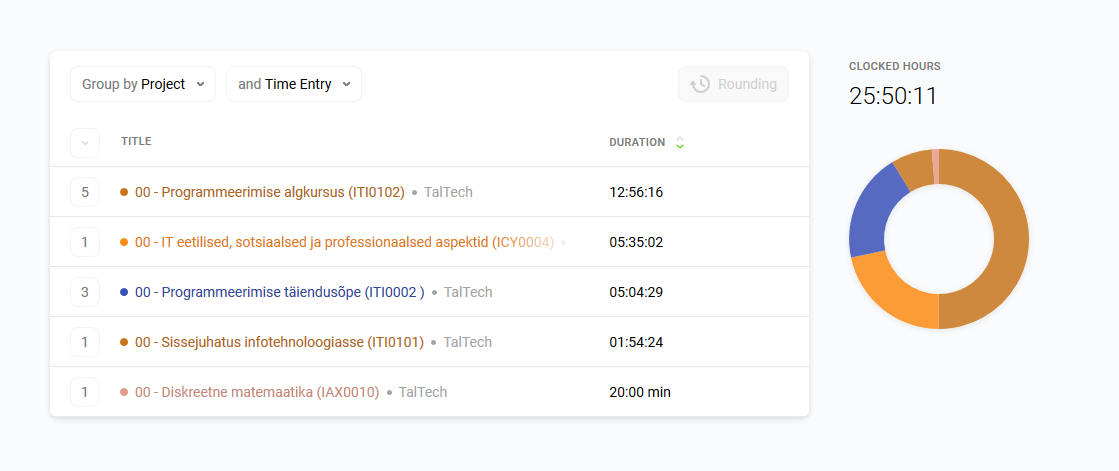Malcolm Gladwell, the author of “Outliers” explains the key to success in any field is simply a matter of practicing a specific task that can be accomplished with 20 hours of work a week for 10 years (which makes 10 000 hours).
I started using Toggl to track the time that I spend on different tasks. It is a very good tool for this. For better reporting, I used TalTech as a client and subjects as projects. My tasks mainly include maintaining my online stores and doing work for school. So for reporting it is good to use TalTech as a client filter. This week I see that have spent 12 hours and 46 minutes on Python after school. It is Saturday at the moment so I expect it to reach 15+ hours coding weekly. At some point this week it made 10x what I have spent on a second subject in school.

If we say, that I started coding this week, then 12.75 hours would make 0.13% of my learning path (10 000 hours). So I say, doing it feels like a lot. Like I am always in PyCharm. But thinking that professionals do it 8 hours a day which makes 40 hours a week – it is more than 3 times what I have done this week 😀
Toggl is far from… or not
Toggl is not the one to blame. Update from week 7 is that I very often forget to turn Toggl on or off. But I think, despite the gaps in tracking I got around 35 hours of independent after school work. Most of it for “Sets, relations, systems” (all Thurdsay and Friday) because I had the test on Friday evening. Python got its 14 hours this week.
Read more: